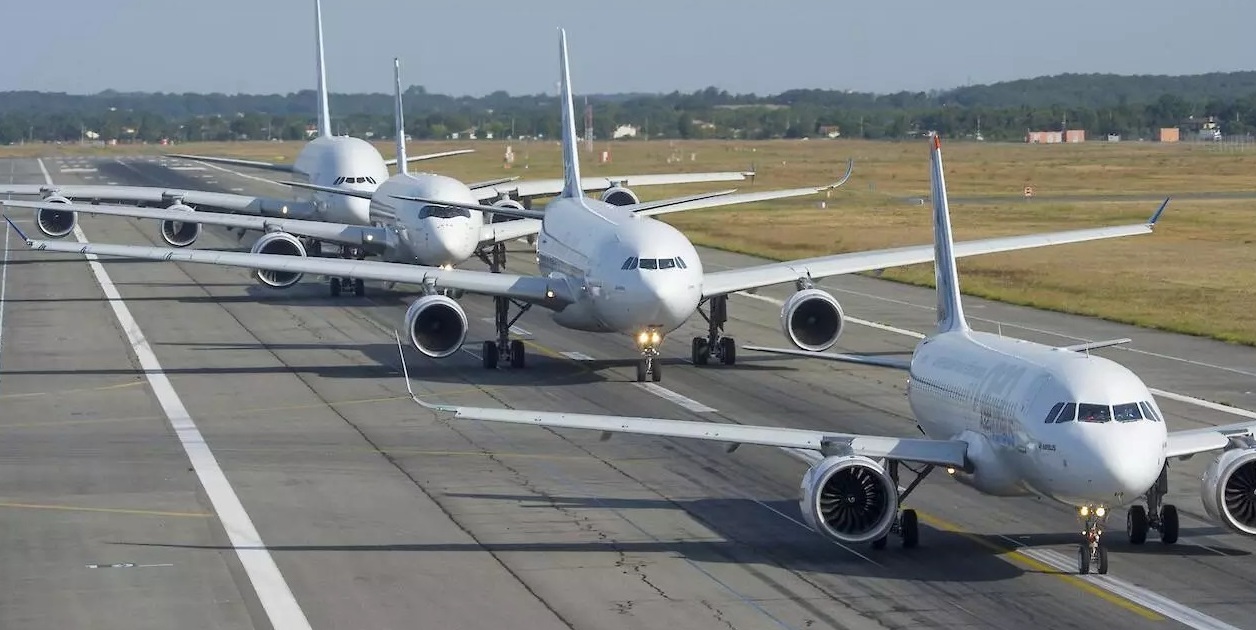Airbus has reported total revenues of €54.4bn ($70.2bn) for 2023, with its commercial aircraft sector accounting for €47.7bn (€51.2bn): a 15% increase from 2022. “It was a landmark year as we have reached a record-breaking level of aircraft orders and backlog,” highlighted Airbus CEO Guillaume Faury, despite a supply chain in a state of “permanent tension” contributing to “a complex 2023”.
In 2023, Airbus’ reported EBIT stood at $4.6bn ($4.94bn), with a free cash flow before M&A and customer financing of €4.4bn ($4.7bn). Dividend proposals are at €1.80 ($1.9 per share). In 2024, the company expects to achieve an adjusted EBIT between €6.5bn - $7bn ($7bn - $7.5bn), although anticipated free cash flow (before customer financing) is slightly down at around €4bn ($4.29bn).
Gross commercial aircraft orders totalled 2,319 (including 1,039 in Q4) with net orders of 2,094 after cancellations, taking Airbus’ backlog to 8,598 aircraft at the end of 2023; an “all time record”. Airbus predicts 2024 deliveries to total 800 units, something which “reflects fairly the risks [it sees] for 2024”.
Some 247 aircraft were delivered in Q4 2023, taking the yearly total to 735 units: a year-on-year increase of 11%. Production of the A320 family is “progressing well” towards a projected 75 aircraft a month in 2026, assisted by the ongoing construction of additional A320 final assembly lines (FALs) in China and the US. Widebody output is expected to reach four units a month in 2024 for the A330 and 10 in 2026 for the A350, while “making progress” on the development of the A350F.
Regarding the A321XLR programme, the first aircraft entered the FAL in December, with the first unit set to be delivered in Q3 2024 (rather than Q2) “following finalisation of the certification documentation, which will take a bit more time than initially expected”. Most delivery dates will not be affected by the slip in certification schedules.
The “lion’s share” of the manufacturer’s production growth is the A320 family, explained Faury, which is where Airbus “might face more risk and more difficulties as [it moves] forward” in terms of volume. However, it will continue to prioritise its relationships with, and delivering aircraft to, existing customers. Although Airbus is experiencing increased interest from customers traditionally centred around the Boeing MAX, this is “not new” confirmed Faury, with Airbus having commanded a market share of over 50% for several years in a row.
Noting that the company is not satisfied with the GTF time-on-wing “affecting the ability of the A220 to perform well, in particular in certain regions of the world,” Airbus stated that it remains focused on “the customers that are satisfied with a product for which the GTF serves their needs”. Although EgyptAir opted to sell its entire A220-300 fleet of 12 aircraft to leasing company Azorra earlier this year, Faury suggested this decision may have been influenced by factors other than engine performance, adding: “as always on engines, complex technology takes time.” He concluded: “In the meantime, we have enough on our plate with a market where the A220 really fits with expectations to fully concentrate on that”. A220 production is expected to reach 14 units a month in 2026.
Describing the current global supply chain as “a world of bottlenecks,” “we have as many situations as we have suppliers” explained Faury, Recognising that Spirit AeroSystems is “one of the suppliers… in financial difficulties,” Airbus is discussing a “lot of parameters of the financial relationship with them.” Airbus is also “supporting a lot of suppliers”, including the internal recruitment of 150% more people to help support supply chain issues. “We’re working closely with our global supply chain partners as we ramp up across all programmes at the same time, with safety and quality at the heart of all we do,” concluded Faury.
Airbus reports €65.4bn total revenues for a “complex” 2023

